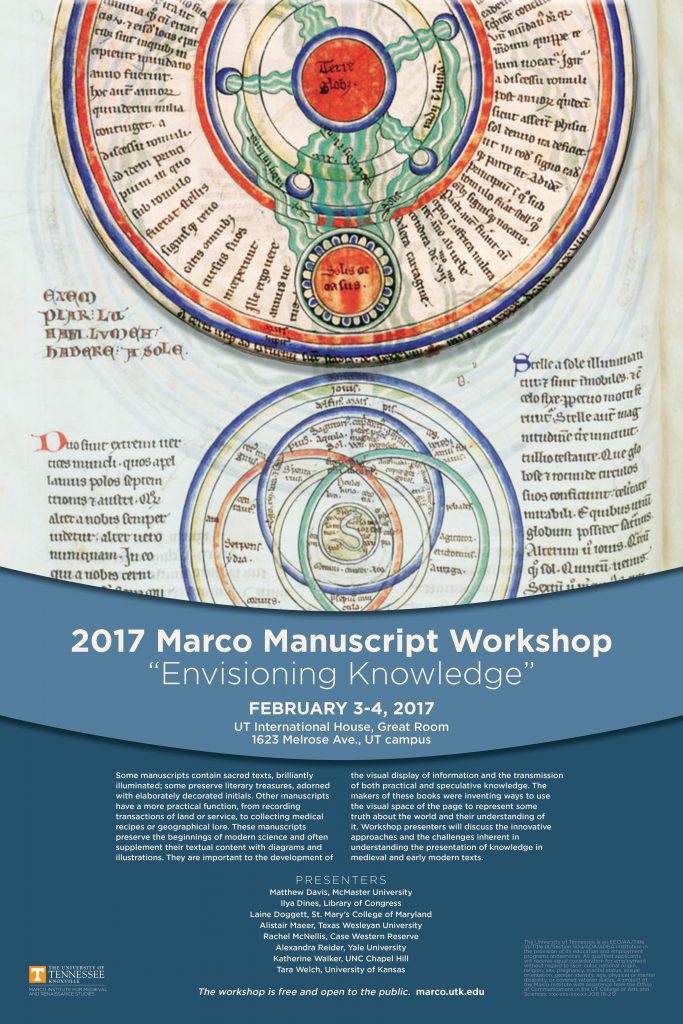
With Presentations By:
Matthew Davis (McMaster University):
“Lydgate Verses in Long Melford”
Ilya Dines (Library of Congress):
“Medieval Bestiaries of the H Family”
Laine Doggett (St. Mary’s College of Maryland):
“Beyond Intertextuality: Changing One’s Story in the Prologue of The Romance of the Pear (MS Paris, BNF 2186)”
Alistair Maeer (Texas Wesleyan University):
“An Empire’s Worth of Curiosity: Envisioning Edward Barlow’s English Maritime World, 1659-1703”
Rachel McNellis (Case Western Reserve):
“Identity Revealed: Cosmological Truths Embedded in the Ars Subtilior Picture Pieces”
Alexandra Reider (Yale University):
“Mapping Languages in the Eadwine Psalter”
Katherine Walker (University of North Carolina, Chapel Hill):
“Early Modern English Almanacs 1500-1700”
Tara Welch (University of Kansas):
“Valerius Maximus’ Facta et Dicta Memorabilia”
The 2017 Manuscript Workshop, organized by UT professors Maura K. Lafferty (Classics) and Roy M. Liuzza (English), explores the idea of “Envisioning Knowledge.” Some manuscripts contain sacred texts, brilliantly illuminated; some preserve literary treasures, adorned with elaborately decorated initials. Other manuscripts have a more practical function, from recording transactions of land or service, to collecting medical recipes or geographical lore, to marking days and years, to charting the scope of the earth or the course of the heavens. These manuscripts may have a more utilitarian appearance, but they often supplement their textual content with diagrams and illustrations, charts and maps, tables and lists. Such manuscripts preserve the beginnings of modern science, and they are important to the development of the visual display of information and the transmission of both practical and speculative knowledge. The makers of these books were inventing ways to use the visual space of the page to represent, in one way or another, some truth about the world and their understanding of it. This year’s presentations will focus on these ideas, considering the challenges inherent in–and innovative approaches to–understanding the presentation of knowledge in medieval and early modern texts. Click here to see the full program.
The workshop is open at no cost to scholars and students who are interested in sharing a lively weekend of discussion and ideas about manuscript studies. Information on guest parking at UTK is can be found at: http://parking.utk.edu/permits/#visitors. There is a lot of construction taking place on and around campus right now (including near-daily changes in road closures), so you may want to give yourself a little extra time to find your way around.
Email marco@utk.edu for more information.